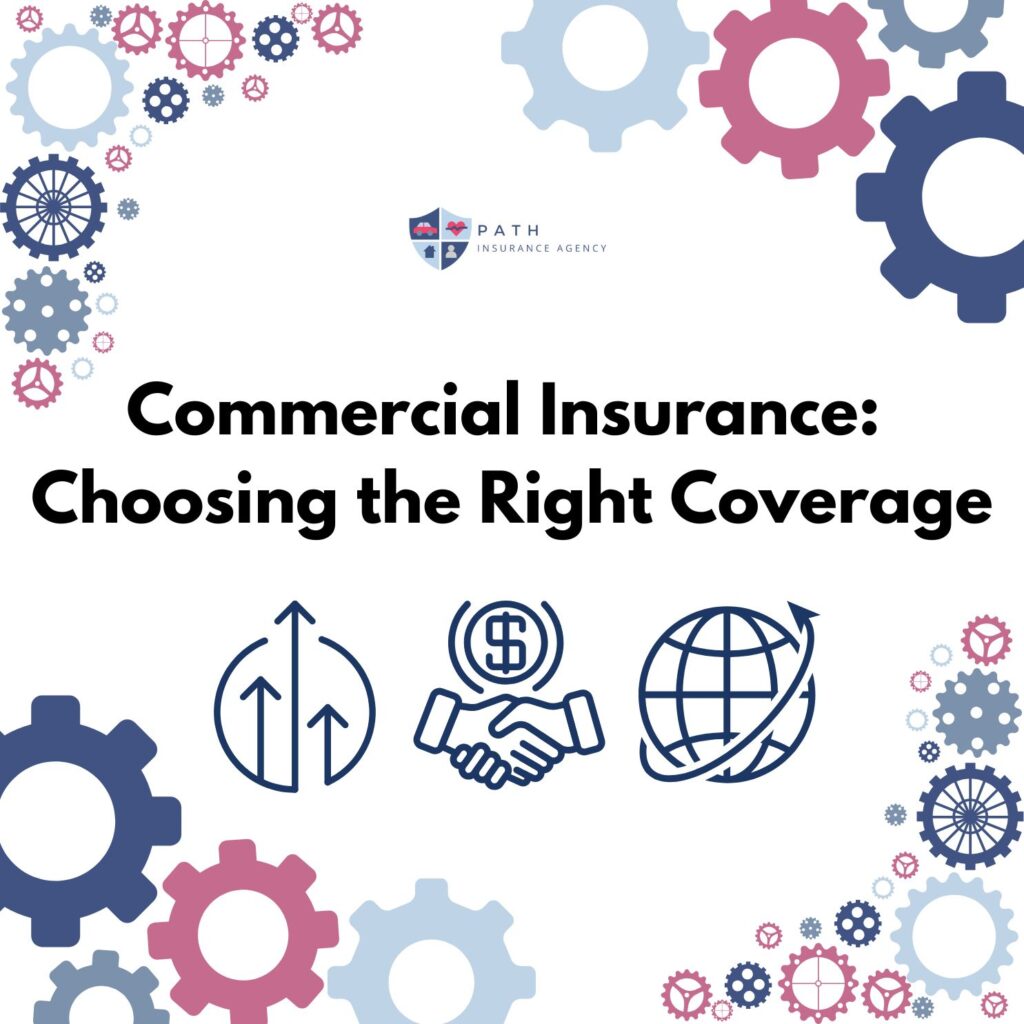Running a business comes with its fair share of risks. Whether you’re just starting out or own an established company, finding the right protections for your business is crucial. Business coverage, especially commercial insurance, helps shield your company from financial losses caused by unexpected events. But how do you choose the right plan for your industry? This guide will walk you through everything you need to know.
What Is Commercial Insurance?
Before we get into details, let’s start with the basics. Commercial insurance is a type of policy designed to protect businesses against risks. It can cover everything from property damage to employee injuries, depending on the plan. Every industry faces unique challenges, and finding the right coverage ensures you’re prepared for whatever comes your way.
Why Your Industry Matters
Not all businesses are the same, and the risks you face depend largely on your work. For example, a construction company has very different risks than a tech startup or a restaurant. Choosing a blanket policy might leave gaps in coverage that could cost you later.
That’s why it’s so important to research industry-specific needs. Here are a few examples of how commercial insurance varies:
- Retail businesses: Policies might focus on theft, damaged inventory, or liability protection for customers.
- Healthcare practices: Insurance often includes malpractice coverage and protections for medical equipment.
- Manufacturers: You’ll need coverage for equipment breakdowns, workplace injuries, and product liability.
Knowing your industry’s common risks will help you narrow down your choices.
Types of Commercial Insurance to Consider
There are several types of commercial insurance policies to explore, each tailored to protect different aspects of your business. Here are the most popular options:
General Liability Insurance
This is one of the most widely used types of coverage. It protects your business from lawsuits related to injuries, property damage, or advertising errors. For instance, if a customer slips and falls at your store, general liability insurance can cover their medical bills and legal fees.
Property Insurance
If your business owns physical property—like an office, warehouse, or storefront—property insurance can protect it from damage caused by fire, theft, or natural disasters. It also covers tools or equipment essential to your operations.
Workers’ Compensation Insurance
Do you have employees? Then workers’ compensation is a must. It provides benefits to employees who are injured on the job, covering medical costs and lost wages while protecting your business from lawsuits.
Professional Liability Insurance
Also known as errors and omissions (E&O) insurance, this coverage is essential for service-based businesses. It protects you if a client claims your advice, product, or service caused them financial harm.
Industry-Specific Coverage
Many industries need specialized policies to address unique risks. For example:
- Cyber insurance for tech companies handling sensitive data
- Liquor liability coverage for bars and restaurants
- Inland marine insurance for contractors transporting materials
Be sure to ask your insurance provider about policies made for your industry.
How to Compare Policies and Providers
Once you know the types of commercial insurance you need, it’s time to shop around. Here are some tips to help with your decision:
- Research multiple providers: Don’t settle on the first company you find. Look at reviews, compare pricing, and check customer satisfaction ratings.
- Understand the policy limits: Every policy has a maximum payout. Ensure the limits are high enough to match your risks.
- Look for exclusions: Some policies don’t cover specific events or damages. Read the fine print to avoid surprises.
- Bundle policies: Many insurers offer discounts if you purchase multiple policies together, such as general liability and property insurance.
How Much Will Commercial Insurance Cost?
The cost of commercial insurance varies based on:
- Your industry (high-risk industries, like construction, pay more)
- The size of your business
- The number of employees
- The coverage limits and deductibles you choose
On average, small businesses may spend anywhere from a few hundred to several thousand dollars annually. While cost is important, don’t skimp on essential coverage. The right policy can save you far more in the long run than it costs upfront.
Commercial Insurance: Conclusion
Choosing the right commercial insurance for your business isn’t a one-size-fits-all process. It depends on your industry’s risks, your business’s size, and the specific protections you need. Take the time to assess your risks, explore your options, and choose a provider you trust.
Investing in the right coverage gives you peace of mind, knowing your business is safe from potential losses. If you’re unsure where to start, consulting with an insurance agent who specializes in your industry can make the process much easier. Remember, the best insurance isn’t the cheapest – it’s the one that truly meets your needs.
Call Path Financial and Insurance Agency today and ask us how!




